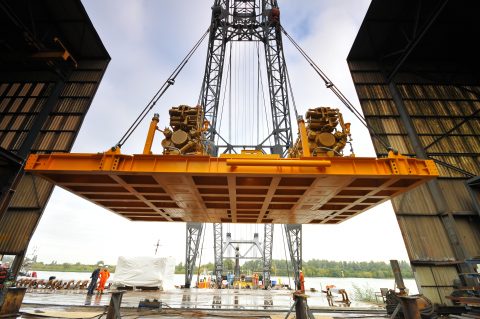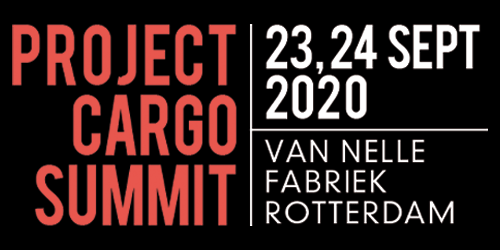Impending knowledge drain in heavy lift sector
 In the coming years, the heavy lift sector is at risk of losing vast amounts of technical knowledge as highly experienced, older professionals retire, warns Richard Krabbendam. “They will no longer be able to pass on their knowledge to youngsters. Not enough companies are internally focusing on that transfer of knowledge and on training and education.”
In the coming years, the heavy lift sector is at risk of losing vast amounts of technical knowledge as highly experienced, older professionals retire, warns Richard Krabbendam. “They will no longer be able to pass on their knowledge to youngsters. Not enough companies are internally focusing on that transfer of knowledge and on training and education.”
The Dutch heavy lift specialist has years of experience in the industry, including at Jumbo Maritime. Since 2010, he has been an independent consultant and engineer, giving seminars and training courses on heavy transport and safe hoisting all over the world. This year will be his last: he is 73 years old and will also be retiring.
Overcapacity
Krabbendam has experienced the changes of the past twenty years up-close. “An enormous overcapacity has emerged. First too many ships were added, then low oil prices reduced the amount of work available. Companies went bankrupt, were taken over or consolidated…. but the overcapacity remained. After all, the number of ships remained unchanged.”
“Now, things have slightly improved. But there are still too many ships for too little cargo. Too much tonnage is available.”
Safe working environment
Due to the decline in work and the drop in rates, companies are forced to cut costs. But Krabbendam feels that the wrong choices are made in that respect. “Not enough is invested in knowledge and safety. Training is crucial. In the aviation sector, by far the safest industry, people are well aware of this. Much more so than in the heavy lift sector.”
“It is the responsibility of an employer to create a safe working environment for staff. Employees are a company’s most important assets. No matter how fantastic your ships, vehicles and cranes are: without well-trained people they are useless.”
Knowledge exchange
Krabbendam advocates the exchange of knowledge between companies. Also regarding accidents and near-incidents.
“Similar to what happens in the aviation sector. There, if research shows that an aircraft or a part has a technical problem, this is published and all the airlines take measures. If a crane topples in the heavy lift sector, the company prefers to keep this quiet for fear of damaging its reputation. While everyone could learn from these incidents, thus potentially preventing new incidents.”
Author: Martin Dekker
Date: the 19th of July
morenews
Project Cargo Summit 2024 registrations open
The time has come, we have opened registrations for this year’s edition of the Project Cargo Summit. As it was previously unveiled, the Port of Bilbao will be our host on September 17 and 18. There have been some changes since the announcement.
Project Cargo Summit 2024 programme takes shape
Excitement is building for the Project Cargo Summit 2024 in Bilbao, Spain! The dates are locked in (September 17th and 18th), the speaker list is filling up fast, and preparations are underway to make the “Project Cargo Summit 2024: Mega Cargo, Mega Solutions” an unforgettable event.
Project Cargo Summit goes to Bilbao
Following the successful outing in Bremen in 2023, ProMedia and its Project Cargo Summit team have turned their sights to a new adventure and have partnered with the Port of Bilbao. So for the 2024 edition of the Project Cargo Summit, project cargo, breakbulk and heavy lift industry specialists will gather in Bilbao for two… Read more ›
